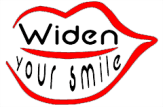TMJ/TMD Symptoms: Clicking or Popping in Jaw Joints
Clicking, popping or snapping in the jaw joint is the most common symptom of TMJ. There may or may not be pain in the jaw when the clicking or popping sound is heard. The clicking sound may even be so loud that others can hear it when you chew or speak.
Usually the cause of the popping jaw is a displaced disc in the jaw. The jaw joints are ball and socket joints, just like the shoulder joint. When ball and socket joints are functioning properly, the ball and socket do not touch because of a thin disc of cartilage located between the ball and socket. This disc of cartilage is held in place and guided by muscles.
If your bite is not right or trauma tears the tissues the jaw joint is pulled out of alignment and the disc is typically pulled forward or torn. Now the disc is not serving as a cushion between the ball and socket. The jaw is functioning on connective tissue, blood vessels and pressing on nerves, causing pain in the jaw and clicking or popping sounds in the jaw joint. Over time this can thin and perforate the tissue until these bones are rubbing against each other. The muscles holding the disc in place are now strained as well. This causes additional pain in the jaw and face as well as in the head, neck, back and shoulders.
Many people have had a jaw joint that has clicked for some time. This click can stay the same for years or start to deteriorate. Many dentists say that it does not need to be treated at this time, as it is self-limiting and will go away with time. That is correct. The clicking joint proceeds to break down further transforming a jaw that can click or reduce onto the disc again into a joint that is now stuck or can not reduce onto the disc. This stuck joint is now quiet but not back to normal. It is now worse than it was before. The longer the disc stays in the non-reducing or stuck position the harder it is to get it back to reducing and staying on the disk. That is why any disk that is clicking should be looked at especially if other symptoms are present.
Typically, if a disk is not reducing, the jaw is stuck behind the disk and it will cause a deflection of the lower jaw. You can see this deflection in a mirror when you open. The jaw will not open straight down as it should. The jaw will slide toward the side of the stuck disk. If the jaw can get back on the disk the jaw will return to the center position. If both disks are not reducing and the jaw is stuck behind both disks then it is called a closed lock. If you have a closed lock your mouth opening is severely limited. The longer it remains this way the harder it is to treat.
Using physiology and orthopedics we work to realign the bite, which also realigns the displaced disc. Once the jaw is realigned and the disc is back in place the clicking and popping sounds in the jaw stop. The muscles holding the disc in place can relax. Thus, alleviating the jaw, face, head, neck, back, and shoulder pain that resulted.
 | Dr. Ronald Widen
| Dr. Ronald Widen